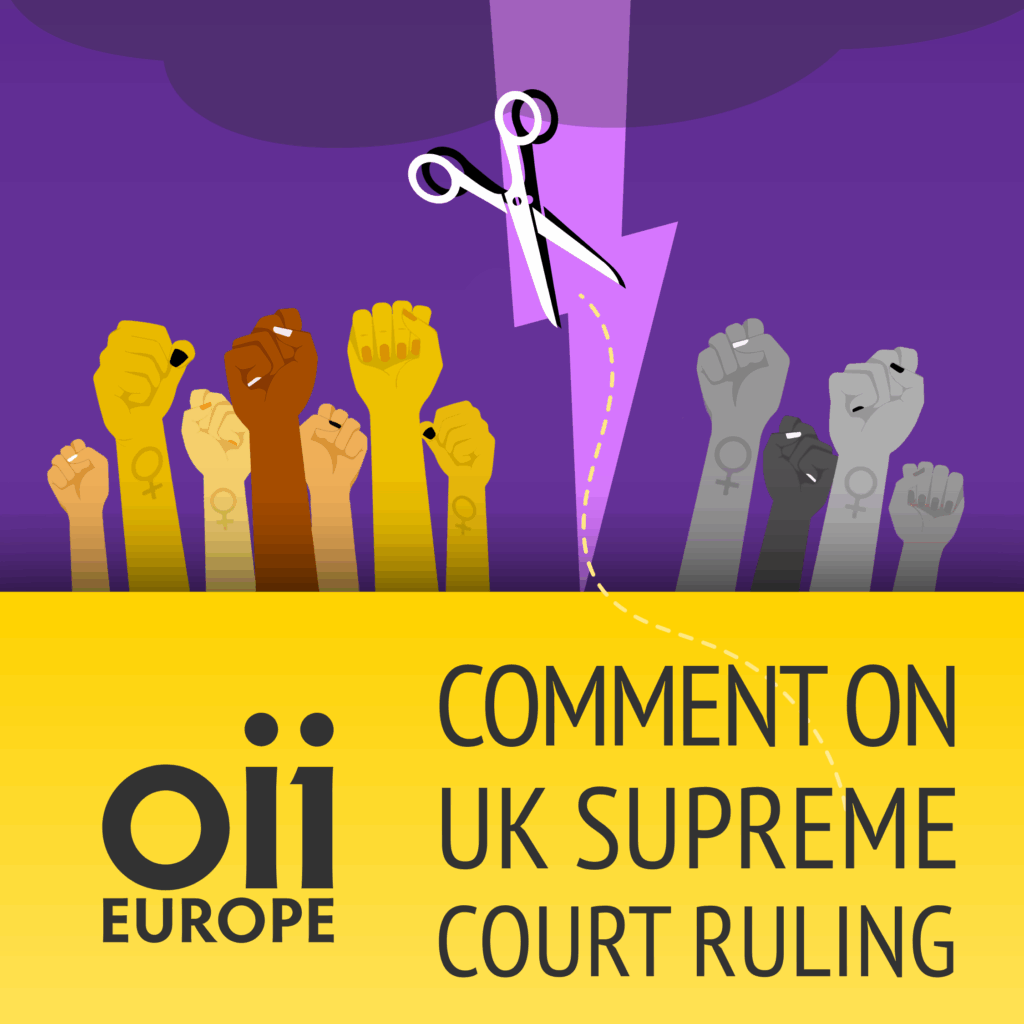Prepared in May 2025

On April 16th, nearly a month ago, the UK Supreme Court issued its judgement in the For Women Scotland v Scottish Ministers[1] case. In the wake of the decision, in which the Court ruled that the term “sex” under the UK’s Equality Act only refers to “biological sex” and therefore excludes trans women, OII Europe has been trying to make sense of how the new ruling will impact the lives of intersex people.
The narrow point of law on which the Court was asked to rule is who counts as ‘a real woman’ under the UK’s anti-discrimination framework (the Equality Act), and whether that legal definition effectively includes trans women who are in possession of a gender recognition certificate (GRC). With the new ruling, trans women with a GRC (or effectively any woman who falls outside the definition of what the Court has called a “biological woman”) are no longer included as women as regards sex discrimination provisions.
While there is still some legal uncertainty regarding the far-reaching ramifications of the decision and of how the Equality Act will interact with other laws, it is clear that this ruling significantly undermines the human rights and gender identities of trans as well as intersex and gender-nonconforming people. As such the judgement is as devastating to the UK intersex community as it is for the trans community.
The ruling is dangerous in that it effectively sets a precedent giving Courts the power to decide who does and doesn’t qualify as a ‘real woman’, based on the bioessentialism and the belief in two binary categories only, which fails to reflect the truth that intersex people exist and that sex – in its chromosomal, hormonal and as well as other primary and secondary sex characteristics – is a spectrum.
Harmful transphobic as well as intersexphobic rhetoric underpins the blatant fear-mongering which has driven the debates surrounding the ruling and the inclusion of intersex people and trans women in the category ‘women’. It undermines intersex and trans people’s dignity, their right to private life, their freedom to access certain spaces, as well as their access to goods and services.
OII Europe wishes to express its solidarity with the UK intersex and trans community, and reaffirm our unwavering commitment to continuing the fight for justice and equality for all intersex people, in all their diversity, including their right to self-determination and freedom from discrimination, violence and exclusion. We also firmly reject the instrumentalisation of intersex people in an attempt to sow division and pit the trans and intersex communities against each other: intersex people are not the exception to the rule, they are proof that the rules to begin with do not make sense and are harmful.


